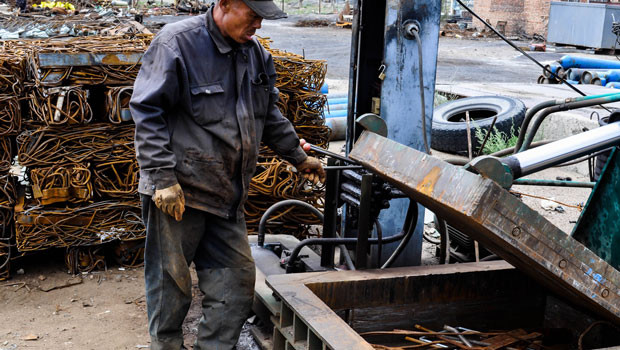China's manufacturing output, retail sales strengthen

Industrial output and retail sales unexpectedly strengthened in China last month, official data showed on Monday, but weakness in the property sector continued to weigh on the wider economy.
According to the National Bureau of Statistics, industrial output rose 3.5% year-on-year in October, up on both September’s 3.1% rise and analyst expectations for growth of 3.0%. It remains the second lowest reading so far this year, however.
Retail sales rose 4.9%, up on September’s print of 4.4% and significantly ahead of forecasts for 3.5%.
However, growth in fixed asset investment slowed to 6.1%, marginally behind consensus for 6.2%.
China was hit hard by the pandemic before rebounding strongly. However, momentum has slowed as the country faces fresh outbreaks of Covid-19, power shortages and global supply chain issues. Beijing is also looking to cool the country’s debt-laden property market, further weighing on the economy.
Craig Botham, chief China+ economist at Pantheon Macroeconomics, said: “The slowdown in investment for October was led by real estate, which fell to 7.2% year-to-date year-on-year, from 8.8% previously.
"Set alongside the largest fall in house prices since February 2015, it is clear that despite a bounce in mortgages, October did not see a restoration of health to the sector. That is hardly surprisingly, giving the multiple defaults and soaring borrowing costs for developers.
“The biggest surprise for us was the beat on industrial production. We had expected a larger drop than consensus, given the intensification of energy shortages in October.
“It was not universal good news, however. Increases in industrial production were concentrated in mining, electricity and food, while overall manufacturing saw very marginal gains.
“Growth built on a narrow based can be unsteady. But with the worst of the energy shortages over, the industry recovery should now spreads to over sectors.”
Botham added that retail sales were “likely enjoying a false dawn”, boosted by Singles’ Day pre-sales.
“October’s unfettered joy is November’s bigger hangover,” he noted. “Combining this seasonal pattern with the latest outbreaks of Covid, which have prompted widespread restrictions on mobility, this is an area of strength which is unlikely to persist.”
Walid Koudmani, market analyst at XTB, said: “While industrial production increased, and retail sales were higher, urban investments showed the lowest daily steel output since December 2017, along with an alarming 17% drop in cement output, which is an important indicator for construction activity in the world’s second largest economy."